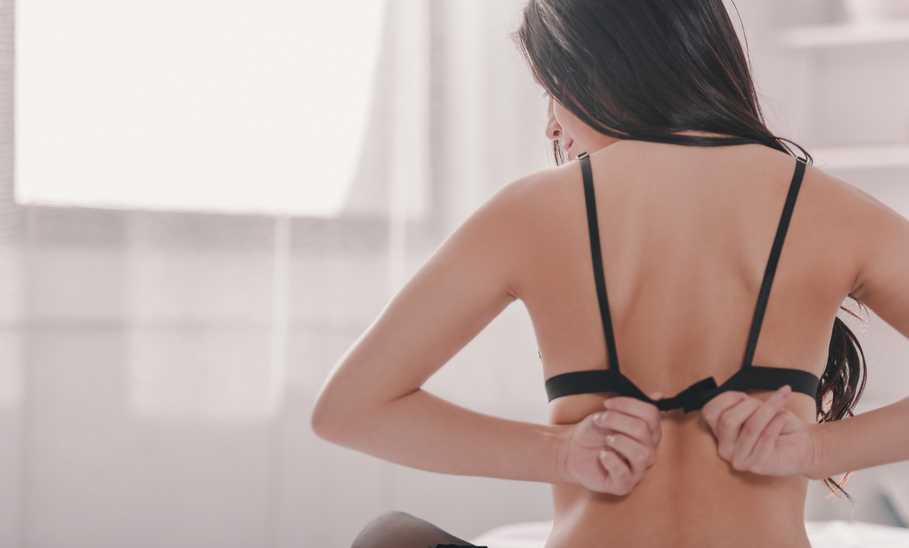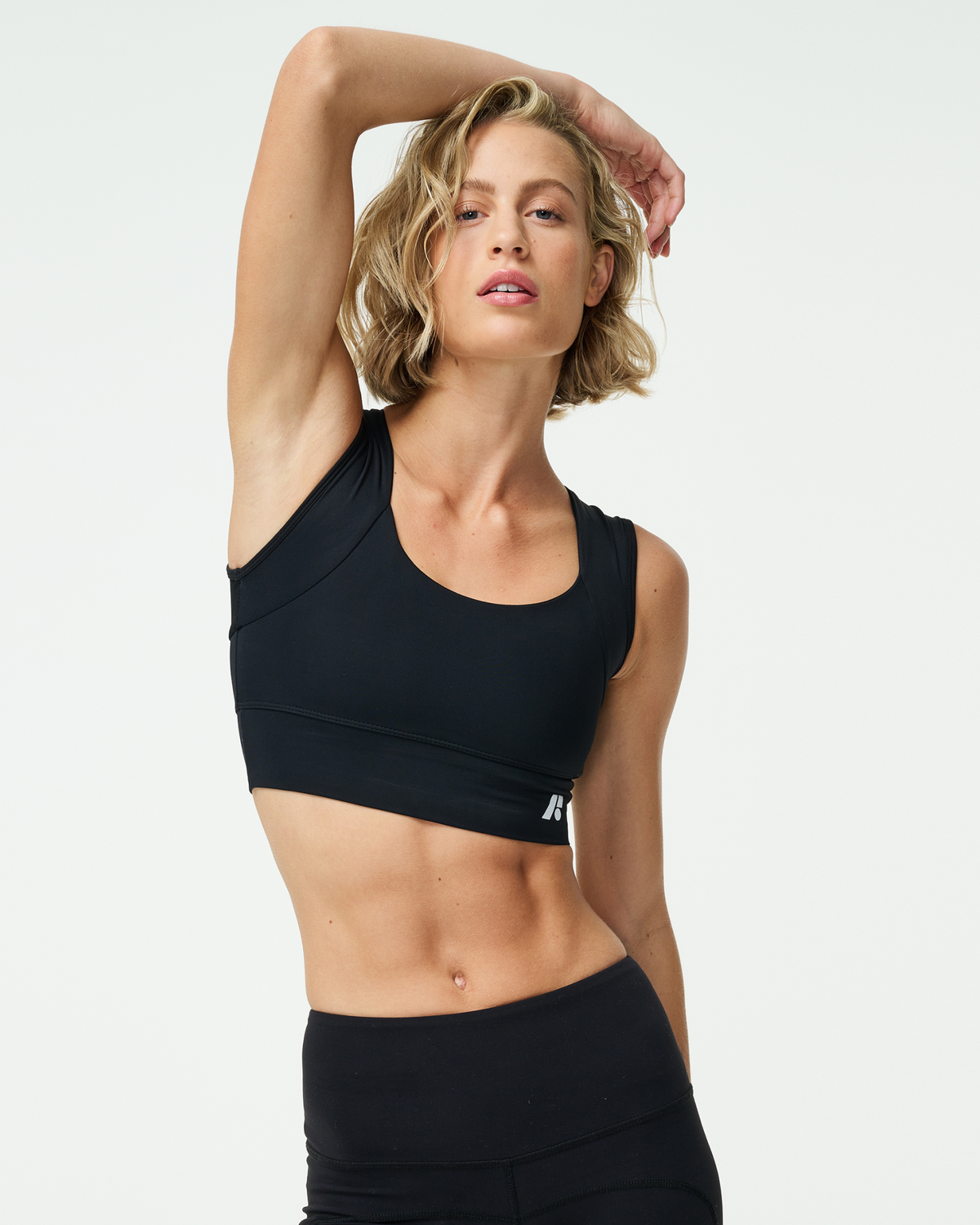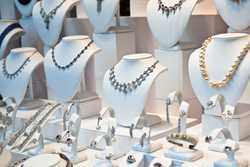Why Do Women Wear Bras? The Hidden Side of an Everyday Undergarment


Our evaluations and opinions are not influenced by our advertising relationships, but we may earn a commission from our partners’ links. This content is created by TIME Stamped, under TIME’s direction and produced in accordance with TIME’s editorial guidelines and overseen by TIME’s editorial staff. Learn more about it.
Most women never venture out in public without wearing a bra. And many spend a good deal of time and experimentation finding ones that are both comfortable and supportive. At Wacoal America, Miryha Fantegrossi, senior vice president of merchandising and design, says they believe the main reason women wear bras is to feel supported and confident. “A well-fitted bra can provide comfort and enhance a woman's natural shape, allowing her to move with ease and carry out her daily activities without discomfort or self-consciousness,” she explains.
Many women feel more supported when wearing a bra because there is less bouncing and more lift. A good bra can also provide back or shoulder relief. Fantegrossi says that in “our experience when women express discomfort from bras it’s almost always because they’re not wearing the right size and shape for their body.” This is why there are so many styles and fits of bras on the market. For example, Wacoal sells a whopping 67 different styles in their product line, each one created with unique features to fit women of different shapes and sizes.
Support, though, isn’t the only reason women choose to wear a bra. I talked to Jane Newman, chief design officer, Global Innerwear at Hanesbrands; Dr. Laura Purdy, MD, MBA, board-certified family medicine physician and medical director of SWELL Medical (SMed); Melony Huber, fashion stylist and the founder and design director of ethical lifestyle collection La Peony; and Dr. Raj Dasgupta, Chief Medical Advisor for Fortune Recommends Health, about some of the other most common reasons why women wear bras. As well as what happens if you don’t wear a bra, and why—for some—a bra is a necessity.
According to the experts I spoke to, the most common reason women wear bras is for support which lends itself to improved posture. Newman says consumers report experiencing back pain as a result of their larger breast size. “The feedback we get is that wearing a supportive bra can help alleviate some of that pain,” she says. And there are so many types of bras for large breasts and bras for small breasts on the market that offer the right support.
One bra designed to provide all-over back support while also improving posture is Bali’s One Smooth U Posture Boost with Eversmooth Back Underwire Bra. It features cool comfort fabric that wicks away moisture as well as lightweight cups and free-cut (seamless) fabric which creates a smooth silhouette under clothing. Another great option is the Power Bra by Forme, which is an FDA-registered, posture-correcting bra that comes in multiple colors and a wide size range from XS to 3XL. “Some women also experience chafing from their bras,” explains Newman, “A well-fitted, supportive bra can provide relief.”
“At the end of the day,” says Huber, “A bra is there to support you in all the right places. It's all about being comfortable and feeling good under your clothes.”


The right bra can help to control bounce and chafing while providing support and preventing discomfort while running or participating in sports, says Newman. Many sports bras also provide cooling and moisture-wicking properties that keep you cool and dry.
Hanes makes several options designed for sports and athletic activities. One is the Hanes Sport Seamless Racerback Sports Bra. As well as wicking moisture, it improves your range of motion and minimizes chafing and itching. This means you’ll be able to move freely and easily during all sorts of physical activities like running, jumping, lunging, and climbing.
Dasgupta says wearing a sports bra while exercising minimizes breast movement, which can prevent discomfort and potential tissue damage. “Scientifically, this support helps avoid stretching the ligaments and reduces the risk of long-term breast sagging,” he explains.
“When you find the right bra, it's a game changer for comfort,” says Huber. The right bra specifically for you depends on what is personally important to you and how you like bras to fit. This can be with underwire or no underwire, push-up or bralette, lace or spandex, straps or no straps and overall cut and design. Also, Huber explains, a bra can help with the overall fit and look of clothing.
“Speaking from a styling perspective,” says Huber, “and depending on chest size, a bra can impact how tops wear and fit.” Some garments require a level of support for the fit to be best. This could be a body-conscious dress, a top with stretch, or a structured jacket or bodice (like one with shaping seams and darts).
Seamless bras with molded cups help create a smooth silhouette under t-shirts and tops made from thin fabrics. “The right bra can provide the support and shape desired,” says Newman which translates into a confidence boost.
Purdy says if you experience any back pain and have larger breasts, it could be related to your bra. In this instance, she suggests looking into a more supportive one. Another medical reason to wear a bra is if you have super sensitive skin, says Purdy, “To the point that you have to wear certain fabrics on certain body parts.” A bra allows you to wear a range of clothing and fabrics over it.
“Wearing bras can help women manage medical issues like breast pain, mastitis (breast inflammation), or fibrocystic breast changes by giving them support and less discomfort from movement,” says Dasgupta. Fibrocystic breast changes, considered a normal occurrence and not a disease, often fluctuate with menstrual cycles. These changes refer to the presence of breast tissue that feels lumpy or ropelike in texture.
Bras are also useful for managing conditions like lymphedema (fluid retention) in the breasts. For issues like mastitis or fibrocystic breast changes, a soft, wireless bra offers gentle support without adding discomfort. Compression bras can help manage lymphedema by reducing swelling and fluid retention. If you have any of the aforementioned conditions, talk to your doctor about whether a specific kind of bra may help.
While Purdy says to her knowledge, there is no scientific evidence that going braless has any long-lasting side effects to the skin or body, “we do know that skin can sag and stretch over time especially for those with larger breasts because of gravity.” For this reason, many doctors suggest that giving your breasts support will preserve your natural lift and help keep elasticity of the skin. Be aware, though, that bras won't stop sagging entirely, says Dasgupta. “Sagging is a natural part of aging and can be affected by genetics, pregnancy, and weight changes,” he explains.
Ultimately, says Newman, there is nothing negative about not wearing a bra. “However, the right bra will provide comfort, support, shape, protection, and modesty that can help boost both functional and aesthetic attributes,” she says.
“If someone doesn't wear a bra regularly, especially with larger breasts, they might be uncomfortable or have back pain from the lack of support,” explains Dasgupta. Over time, this can cause the ligaments and breasts to stretch, which could lead to sagging.
Before bras, women wore corsets of varying lengths mainly to shape their bodies, often uncomfortably. Though not necessarily designed for breast support, by nature of the way they’re constructed, most corsets do provide this support, most commonly pushing them upward.
In some earlier cultures, women wrapped fabric around their breasts; similar to modern day bandeaus. There are mosaics and other historical data that show women during the Roman Empire wearing breast bands.
“There is no set age for when girls should start wearing bras because everyone is different,” says Newman. It’s up to the individual to decide when she’s ready based on her personal development and comfort level.
“When a person is ready differs based on their growth and development and puberty,” explains Purdy. Whenever a girl wants to wear one it is always a great time; meaning whenever a young person decides they want to wear one, they should.
According to Dasgupta, there aren't any strict medical rules. Again, it’s really about personal comfort and when the breasts start to develop, he explains. A good rule of thumb is when they begin noticing substantial growth or feel any discomfort during physical activities.
Not necessarily. According to the experts I spoke with, wearing bras (or not) is a personal decision most often based on individual levels of comfort. There are even some benefits of not wearing a bra. Some people develop rashes or other irritations caused by underwires, too-tight fits, or itchy fabrics, explains Purdy. Some bras can cause chafing and/or back or rib pain for some people. If you decide and prefer to go braless, Purdy says over time your skin may lose some lift and elasticity with the lack of support which could cause sagging. “A factor that will play into this does include breast size,” she explains. If you have larger breasts, for instance, and don’t wear a bra, you may see more sagging and other symptoms such as back pain over time. If you have smaller breasts, you may not notice any symptoms. But at the end of the day, it’s up to you, depending on your lifestyle and preference.
The information presented here is created by TIME Stamped and overseen by TIME editorial staff. To learn more, see our About Us page.



